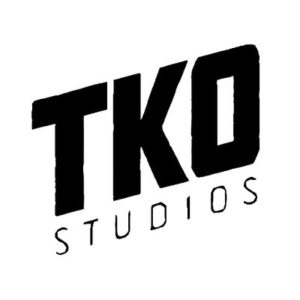
Chun is also the co-founder and Publisher of TKO Studios. The company launched last year with a splash, releasing four books at the same time. Two of the comics were co-written by Chun: The 7 Deadly Sins, a western, and The Fearsome Doctor Fang, a period adventure tale. They were available in three formats on day of release: a graphic novel, a set of single-issue comics, or digitally. This is in addition to releasing the first issue for free online. And the company bypassed Diamond entirely, instead focusing on selling to consumers and comic book shops directly.
TKO is about to release their second wave of comics, with four new books by creators like Jeff Lemire, Ming Doyle, and Gabriel Walta. They also feature books written by Roxane Gay, the award-winning author of Bad Feminist, Hunger, and the Marvel series World of Wakanda, and Natalie Chaidez, a television writer best known for shows like Queen of the South and Terminator: The Sarah Connor Chronicles.
Chun has long been a comics fan and a visual artist — he drew the film poster for Half Nelson (the first feature by Captain Marvel directors Ryan Fleck and Anna Boden) — and his comics show that he understands not just the business side of the industry, but how comics work on multiple levels. I spoke with Tze Chun recently about how TKO Studios works, what’s in the second wave, and plans for the company going forward.
Alex Dueben: You made a splash with the first wave of books and announcing the second wave shortly after. You had a mix of established creators and creators a lot of comics readers might not know. You had four tenets for the company – release the whole story at once, in multiple formats, the first issue is free online, and go around Diamond. I’m curious how you and the team decided on this approach.
Tze Chun: TKO Studios was founded by me and my co-founder Salvatore Simeone, and we quickly brought on Sebastian Girner, who was an editor for Marvel and worked on some of the bestselling books at Image. We wanted to show the comic book industry that we’re here to stay by binge-releasing four full series all at once. As a fan, there’s a level of trust that has to be established by a new company in the comic book industry because there are so many fly-by-night companies and ones that fail after just a year or two. We wanted to come out with a show of strength and to gain the trust of fans.
Binge-releasing and releasing in multiple formats is something we’re seeing in the TV model from Netflix, and in the day-and-date releases in films. We wanted to implement these strategies to bring new readers to comics. The bottom line is that comics are too hard for new readers to get into. The way that they’re currently distributed makes it very hard for a new reader to discover and stay with a series until completion. We want to make it easier for fans. When you purchase one of our books, you can binge-read through the entire, complete series.
As far as working with comic book shops, one of the reasons we were so successful doing deals directly with stores and going around Diamond was that if you’re a comic book shop, it takes a certain amount of energy to introduce a customer to a new series. If a store employee expends that energy recommending a single issue, the store may only capture a dollar for each sale and Diamond takes their cut. With us, you know that if people do decide to purchase a book from your store, they’re buying the entire six issues at once, which is a significant sale. We wanted to make comic book shops know that they’re a big part of what we’re doing and all the considerations we’re making. I personally buy most of my comics in comic book shops. So, comic shops are very important to us.
The first issue free came from wanting to give people a zero-risk entryway into our stories. We wanted to give people a chance to look through them before they made a purchase. Again, we know that we have to build trust with fans as a new company.
Dueben: As you mentioned, TKO’s second wave of books is coming out. What did you learn from the first wave and after that has helped you change, or what have you learned form comic shops and bookstores?
Chun: One of the main things about our company is we want to be the most transparent comic book company out there. That goes for talking with staff, talking with creators, talking with retailers. We offer comic book shops a deal that is one of the best deals in comics. They can buy our comics at 50 percent off the cover price and we pay for shipping directly to shops. Early on — as with anything when you’re trying to do something new — there’s a phase where you’re trying to educate people about who you are, what you’re doing differently, and most importantly why you’re doing it. For us, that’s a love of comics and the comic book medium. With the comic book industry, because there has been a certain status quo for such a long time, when a new company comes out people ask, what are they doing? Why are they doing this? It was important for us to get fans and comic book shops to understand the basic principles that we believe in, who we are, and what we were doing.
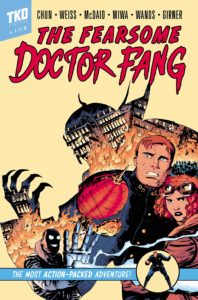
Dueben: You co-wrote two of the series in the first wave — I especially liked The Fearsome Doctor Fang — and both were different from the film work you’ve done. Some of that is just budget, but I think about all your work and it fits in a genre but you never seem to be trying to make genre work.
Chun: When I started out I was writing a lot of character driven dramas and then at a certain point I ended up writing more genre work. I found that from my indie film roots, I was better at approaching a genre piece from a character standpoint first. When I tried to do something that was genre-forward, character second, it didn’t work as well as when I was trying to tell a character story that just happened to be within a certain genre.
Dueben: The first wave had a wide range of work. Are you always thinking about this broad range of work and very different books in each wave?
Chun: I think so. One of the things that we all talked about early on was for each wave we want something for everybody. We want to have diverse books in terms of the types of stories we tell. In the first wave there was a pulpy action adventure, a murder mystery set in the homeless population of Los Angeles, a war story, and a western. In the second wave we have Sentient, a science fiction book by Jeff Lemire and Gabriel Walta, The Banks, which is a heist story by Roxane Gay and Ming Doyle, Eve of Extinction, which is survival horror, and Pound for Pound, which is an MMA thriller. Ideally there’s something in each wave that appeals to everyone. We were careful to release just four books at a time as to not overwhelm readers, but what’s been great is we’re finding most people are buying at least two or three books in each wave.
Dueben: As far as second wave, you have Jeff Lemire, Ming Doyle, Gabriel Walta. You have Roxane Gay and Natalie Chaidez, who might be less well known to comics fans but are immensely successful [in other media]. What are you offering them or Garth Ennis or whoever that makes them say, “Yes, I will work with you”?
Chun: I would say the majority — if not all — of the people in comics are not in it for the money. They’re doing it because they love the art form and they want the art form to have a voice in our culture the way equal to movies and TV. We came out of the gate telling our creators we wanted to try something new. That was, I think, the main determining factor for them to go with us. We were trying to modernize the way that comics were distributed and read. We wanted to go around Diamond. Those were all, I think, the main attraction for most of our creators. Also, there’s something to be said about the fact that we had the ability to cash flow and binge-release the books. They could see we were really organized, and that editorial were on top of things. Even something as simple as, when somebody working for us invoices us, we pay the same day. There are levels are professionalism that I think we were able to show them that we were serious.
Dueben: Also once the first wave came out, people could see that you have excellent production. Jared Fletcher is doing great work.
Chun: Thank you. We were so fortunate to get Jared. I’m such a fan of his.
Dueben: Not to get too deep into the business end of things, but are these creator owned books?
Chun: They are not creator owned, but we try to bring the best of both worlds of that and the Marvel/DC model. We pay a great page rate and then creators get a percentage on the back end. I can’t say the number, but that number is off the top, meaning that none of our expenses are taken out. We’re transparent with our creators. Within 30 days of our first wave’s launch, creators were seeing their first royalties.
Dueben: Without naming names, there are companies which buy comics ideas but they have no interest in publishing. You might own these books but you’re not running an IP factory. No one would publish Goodnight Paradise — or write it or draw it — thinking this is going to be a lucrative entertainment property. You’re approaching this as a publisher who wants to make interesting work.
Chun: Having grown up reading comics and working in Hollywood, I have absolutely seen what you’re talking about. We never want to be one of those companies. The primary mandate for the company has to be that we’re going to publish great comics. For something like Goodnight Paradise, that book was not for a lot of publishers and that was why we wanted to do it. We believed in [Joshua Dysart]. I didn’t want to see that story told in a rushed way. I wanted him to have the space to tell the story in a way that it deserved to be told. We’re going to end up taking risks but we’re always going to publish the best possible book. I know what it’s like to pick up a comic in the store and you know that it’s just designed to be for IP. It’s never a great feeling as a comic book reader when that hits you. We make sure that with every one of our books that they are first and foremost great comics.
Dueben: I know you haven’t announced the third wave yet, but what you can say about looking ahead and thinking about down the road.
Chun: I can’t say too much about it yet. We’re probably going to announce both the third and fourth waves towards the end of the year at the same time. As a company we can plan pretty far in advance and after the first wave was released, it certainly became easier for us to reach out to creators.
Dueben: But going forward, you’re thinking about this mix of people and genres and approaches in each wave.
Chun: The way that we talked about was we want to tell stories in different genres, but new takes on those genres. Goodnight Paradise is a murder mystery unlike any that I’d seen before. We want to do genre work, but it always has to be character driven and have an emotional core to it. Those are really the two things we look for. Within the first and second wave we did a mix of established creators and up and coming creators and we want to continue to do that. It’s always nice to have a book by Jeff Lemire or Roxane Gay, but we also want to have up and coming creators get the benefit of our distribution model and the fact that we’re not skimping on the page rate or on coloring and lettering and book design.
Dueben: Your big project right now is overseeing the Gremlins animated prequel series. You were making low budget films, you’ve been working on TV for the past few years, what is the experience of working on an animated series especially coming off of writing comics.
Chun: Honestly I don’t think I would have gotten the gig if I hadn’t made The Fearsome Doctor Fang. I was working on Gotham when I was approached by Amblin. They were talking to live action people about Gremlins and they asked if I had any animation experience. I told them that I hadn’t, but I had been a visual artist when I was younger and then told them about TKO and The Fearsome Doctor Fang, which takes place in roughly the same time period as this Gremlins show. The fact that I co-wrote that story, worked with an artist on character design and through to the final product, was a big reason for Warner Bros. and Amblin bringing me onboard.
Dueben: To end with your origin story, you’re a visual artist as you said, when you were younger were you thinking about making and drawing comics?
Chun: It started in middle school. I wanted to be a comic book writer and artist. I got into writing primarily because I thought of myself as an artist and when I was like 10 years old and drawing a comic you realize i guess someone has to put words in these balloons. I found that I really liked the process of writing. Learning to think visually making comics was the most important thing for me in terms of even getting into film and wanting to tell stories visually.
Dueben: Does part of you want to have enough time one of these years to draw a comic?
Chun: [Laughs] I would like nothing more than to be able to do that. When I’m getting art back from artists, that’s always the best part of the process for me. Honestly, it’s the best part of my day.
TKO Studios is slated to release its second wave of books this fall. To keep up with the publisher, follow on Twitter @TKOPresents or on Instagram. You can also keep up with Tze Chun and his current projects on Twitter @thetzechun or on Instagram.


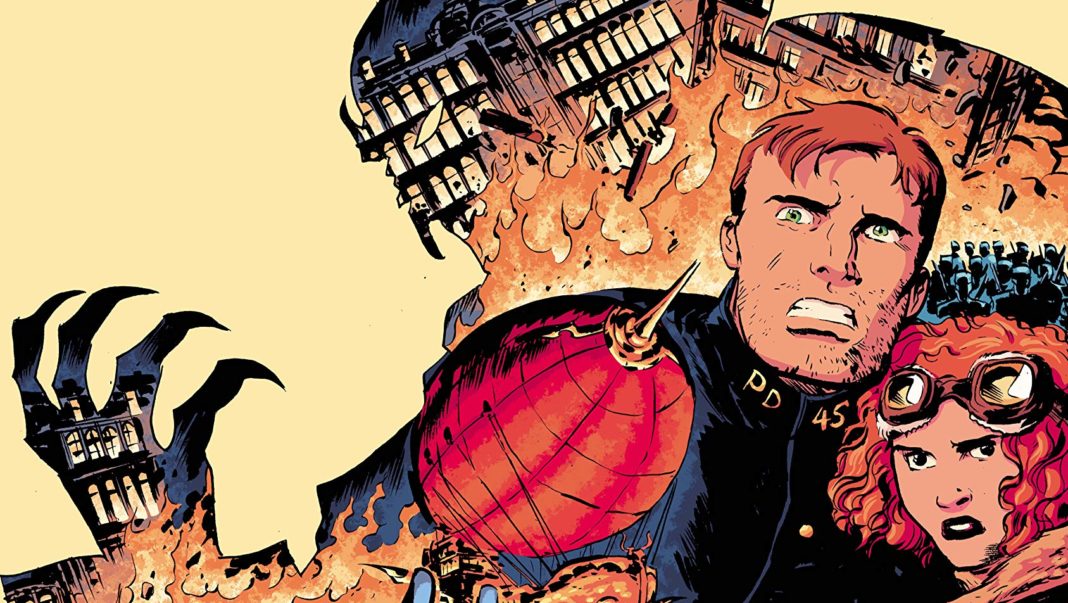
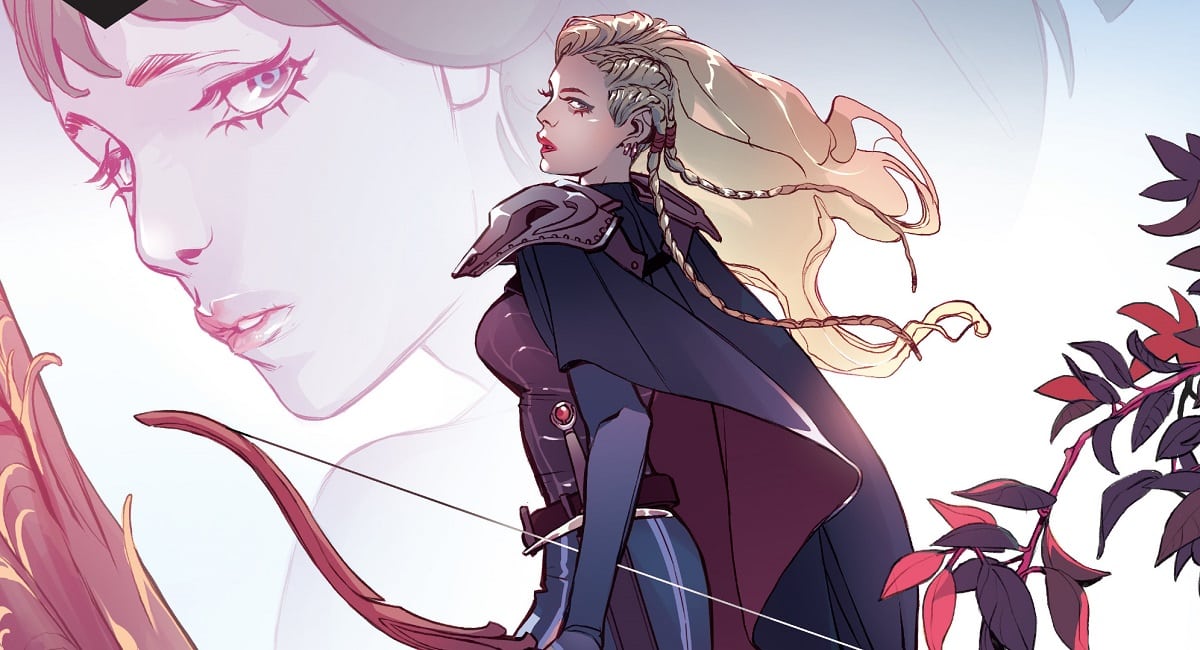
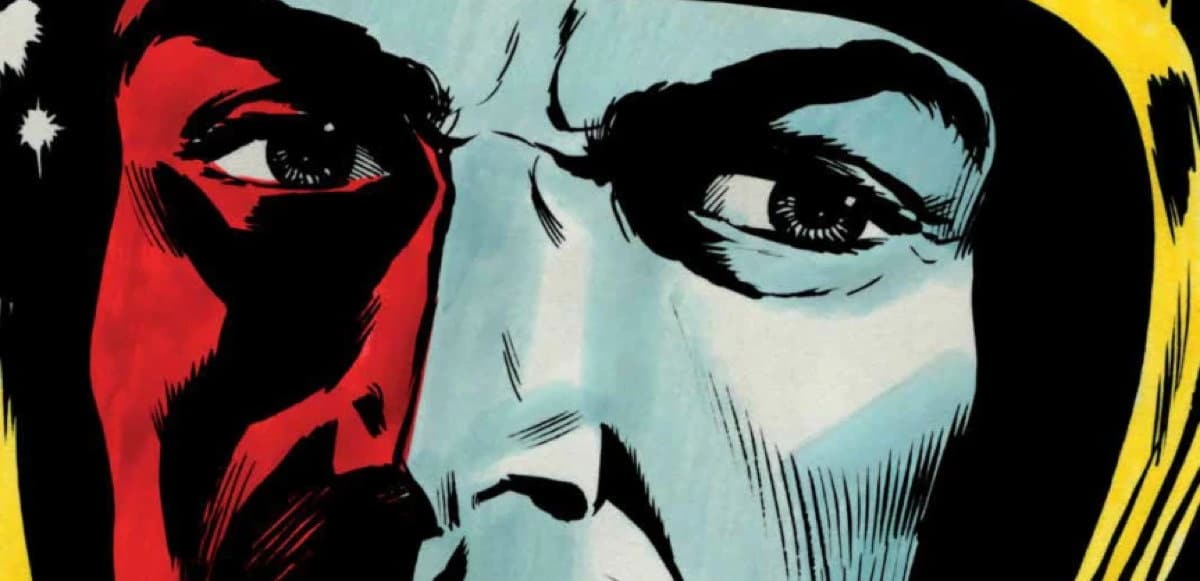
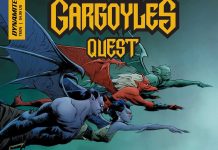



I love TKO but unfortunately they don’t sell digital versions of their comics anymore, they did in the first wave. That’s a shame, for those of us who prefer that format. I wonder why they stopped it.
Comments are closed.